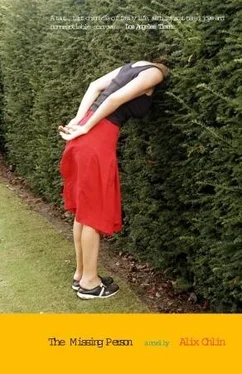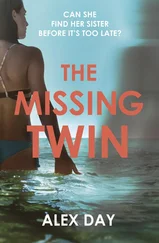Lynn: We cannot return to the elemental things. There is no way to go back. But how to move forward when so much has been lost? How can we even think about the future when we are burdened by such an oppressive past and pessimistic present?
“Did you tell Wylie I was coming?”
“How could I tell him?” my mother said. “He has no phone, he’s never at home, and God help the person who tries to get a straight answer from one of his so-called friends.”
We pulled up to her small condo. She lived alone now, in a two-bedroom place, having moved out of the house where I grew up, in the Northeast Heights, within a couple months after my father died. Sitting in the living room, I waited for her to say more about Wylie, to deliver my marching orders. But now that I was finally home she didn’t seem to be in any rush. I closed my eyes — it was midnight in New York — as she puttered in the kitchen. The sounds of her movements were like my native language, the first I’d ever heard and learned: the hiss of water, her footfalls on a tile floor, a drawer being pulled out, spoons clinking against ceramic cups.
Her house was clean and spare. Unlike in my apartment, there were no stacks of anything anywhere, not a mote of apparent dust. On the white mantel above the fireplace she had arranged her collection of artifacts: Hopi kachinas, a storyteller doll, a bowl from Acoma. I thought about Wylie’s contempt for the material world. Lynn: We purchase our crumbling senses of self at the store, then try to mend the body politic with items advertised at attractive discounts during the President’s Day Sale. I sat there on the couch, my eyes still closed. Cicadas pulsed outside.
My mother came out of the kitchen and brought me a glass of water, touching me on the shoulder. “You’re falling asleep,” she said, and I realized she was right.
Mid-morning I woke to an empty house, my mother gone to work early, at least in my terms; she’d left a note inviting me to lunch. I wandered around the house opening curtains. The sun was plangent and full, striking through the neighborhood’s occasional pines, her street deserted except for a few cars parked neatly against the curb. It all seemed weirdly quiet. Wylie’s old car from high school, a boat-sized, ivory-colored Chevy, sat in the driveway. These days, according to my mother, he’d abandoned gasoline transport and went everywhere on foot or by bike, but couldn’t bear to actually sell the Caprice. The sun had bleached its paint, turning the ivory uneven and mottled as the keys of an old piano, and its wide red-leather interior was peeling and patched in places with duct tape. Nonetheless, it started right up. Despite his politics my brother apparently came back and serviced it regularly.
I drove around Albuquerque for a while, getting used to the feel of things. One-story buildings shedding turquoise paint, dirt lawns parked with old pickups. To the east, the bare brown mountains; to the west, the lone peak of Mount Taylor. Fast-food franchises brightened every block, a rainbow of reds and yellows, their white marquees advertising specials that were always misspelled or missing a letter or two: MIL-SHAKES, ROTBEER, FENCH FRIES. The colored shards of a million broken bottles glittered among wildflowers in abandoned lots and alleys. Every now and then, billowy clouds of grit rose in front of the car. It takes some kind of city, I thought, to make Brooklyn seem clean.
Among the adobes, here and there, stood the green landscapes of rich homes and corporate parks. I drove past the thickly watered emerald of a golf course, where men in festive pants lifted their clubs to the desert sky. Another green spot was the cemetery, where I stopped to look at the square, undistinguished marker I hated. It wore his name, Arthur Fleming, and the dates of his life, primly chiseled letters and numbers that seemed to have nothing to do with the fact that once this person, my own father, had lived in the world, and now did not. I pictured his face, with all its familiar crags and shadows, then shelved it in a corner of my mind, a gesture as physical and as habitual to me as folding clothes into a drawer. In the weeks after he died, I saw him everywhere on the streets of New York — getting on the 6 train at Union Square, buying a donut, waiting in line for a movie, not that he ever actually did any of these things — and knew that I had to put him away in order to keep going on. Now I spent barely a minute in front of his grave. I hadn’t brought flowers or any other gifts, and felt that the moment was lacking in ceremony. Then I got back in the car and headed toward Wylie’s.
On Central Avenue, opposite the low-slung campus buildings, a few summer students sat at the Frontier drinking coffee among the Hare Krishnas and the homeless. A man in tattered, abbreviated shorts, the rest of his body tanned to leather, had taken up a post outside the library, holding up a placard to the passing traffic: I’M A NUDIST AND I VOTE. A woman with an umbrella and many layers of clothing was muttering private endearments to the sidewalk.
Wylie lived on the second floor of a negligible apartment building three blocks from the university. Out front, several old cars sat slumped in the gravel, two of them missing wheels.
I knocked on his door and waited for a good long time. “Wylie, it’s Lynn.” There was no answer, so I knocked again.
A middle-aged woman in a thin housedress opened the door of an apartment below and squinted up at me, the smell of long-standing smoke drifting into the morning air.
“I’m sorry if I—”
“I thought you was from the property management,” she said, and slammed the door.
I knocked once more, without much hope. But as I was leaving, the door opened, and I turned to see a red-haired man standing there in nothing but blue boxer shorts. He had brown, freckled arms and a tanned face, but very white skin in the outline of a T-shirt, so that his paleness seemed to cover him like clothes. He smiled broadly, as if he were delighted to see me, and for some reason this surprised me more than anything. Finally I said, “You’re not my brother.”
“Probably not,” he agreed. He ran a hand through his short red hair, which stood up straight as a field of red grass; then he opened the door wider and stepped backwards. “Would you like to come in?”
The apartment was dark behind him. “Is Wylie here?”
“No, ma’am.”
“Do you know where he is?”
“No, ma’am.”
“Or when he’ll be back?”
“No, ma’am,” he said, smiling widely.
His skin, even his pale chest, had a glow that reminded me I’d been inside an apartment in Brooklyn for most of the past ten months. He was possibly the healthiest-looking person I had ever seen.
“Would you like to come in?” he said again.
I tried to look around him, into the cavelike apartment, but couldn’t see anything. “All right,” I said, brushing past him into the living room. I flicked a light switch, which did nothing. The power was apparently off. Boxer Shorts walked around the room pulling down sheets attached to the windows with duct tape, seemingly Wylie’s favorite design accessory. The sun stormed in, and he turned around, covering his eyes.
“Excuse the mess,” he said. “I just got up.” He stretched his arms out from his long, pale chest and then went over to a sleeping bag in the corner and picked a pair of jeans off the floor. The jeans themselves were spotted with holes and showed a fair amount of skin.
“You sleep late,” I said.
“I was up late, um, working.”
“And where do you work?”
He squinted at me in the brilliant light. “I work for the good of Planet Earth,” he said.
I burst out laughing. “Yeah, okay.”
Читать дальше












